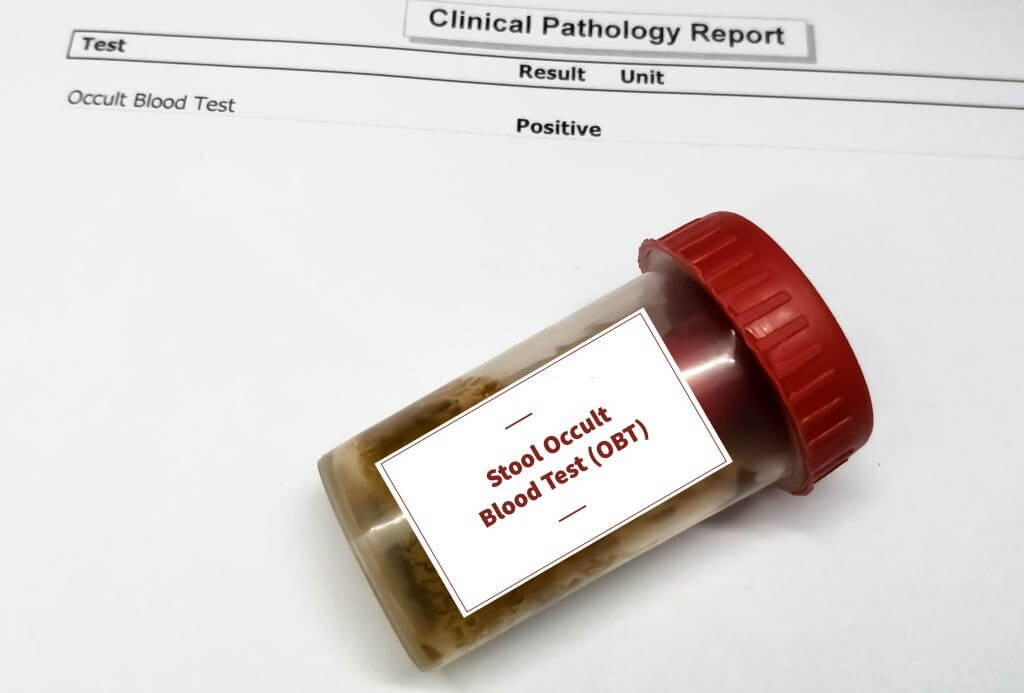News and Blogs
FOBT of Fecal Samples: A Simple Colorectal Cancer Screening Tool

Fecal samples can be used to detect hidden blood in the stool through tests like the fecal occult blood test (FOBT). The presence of blood may indicate gastrointestinal bleeding, which could be caused by conditions like colorectal polyps or cancer. Screening asymptomatic patients over 50 years old with an annual FOBT has been shown to reduce colorectal cancer mortality by up to 16%.
What are some methods for FOBT and what do they detect?
Traditional FOBT methods include the guaiac-based test and immunological tests. These detect the heme component of hemoglobin in stool. Newer FOBT methods like the immunochromatographic test iFOB qualitatively detect human hemoglobin. The iFOB test has high sensitivity, detecting hemoglobin at concentrations as low as 50 ng/mL buffer or 7 μg/g feces. It aids diagnosis by indicating occult gastrointestinal bleeding from conditions like colorectal cancer.
What are the key performance parameters of FOBT for detecting colorectal lesions?
Studies have shown FOBT has sensitivity ranging 45-75% and specificity of 35-94% for detecting colorectal lesions. The positive predictive value is 10-60% while the negative predictive value is very high at 97-99.5%. The high negative predictive value means a negative FOBT result reliably rules out colorectal lesions. However, a positive FOBT requires colonoscopy for definitive diagnosis as the positive predictive value is lower.
What are the clinical implications of FOBT screening?
FOBT is recommended as the first line colorectal cancer screening method in many countries due to its non-invasiveness, safety, low cost and high sensitivity. It reduces morbidity and mortality by detecting lesions early when they are still treatable. However, FOBT may miss some lesions due to intermittent bleeding. Periodic repeat screening is important to detect new lesions. Patients with positive FOBT should be referred for colonoscopy.
What are some limitations of FOBT as a screening tool?
FOBT can give false positive results due to bleeding from non-colorectal conditions like hemorrhoids. Some polyps may not bleed detectably. Dietary restrictions are required prior to guaiac FOBT but not immunological FOBT. There is also a risk of false negatives if the sample contains insufficient stool quantity or improper technique is used. Patient compliance with screening protocols affects FOBT efficacy.
In summary, FOBT of fecal samples is a simple, non-invasive and affordable screening tool that can detect occult colorectal bleeding and reduce mortality from these potentially preventable cancers. It has high negative predictive value but positive results require colonoscopic confirmation. Repeated periodic screening is important for early detection. FOBT coupled with colonoscopy can improve outcomes in colorectal cancer screening programs.
Click to View → Mantacc FB-YT01 Disposable Stool Sample Collection Kit
Reference
Ana Flávia Saracenia, Rodrigo Azevedoa, Clarissa Maria Gomes Almeidab, Antônio Carlos Baravieraa, Desiderio Roberto Kissa, Maristela Gomes Almeidaa. Association of fecal occult blood tests results with colonoscopic findings in a general hospital and validation of the screening test. DOI: 10.1016/j.jcol.2018.10.011
Related Posts
Fecal Swab: Essential for Detecting Enteric Pathogens
Stool Sample Collection Kits: Methods and Challenges
Stool Sample Collection Kits: Why Is It Important?
Necessity of Fecal Sample Collection for Intestinal Parasite Diagnosis
How do Fecal Samples Show Dysbiosis in Neonatal Jaundice?






